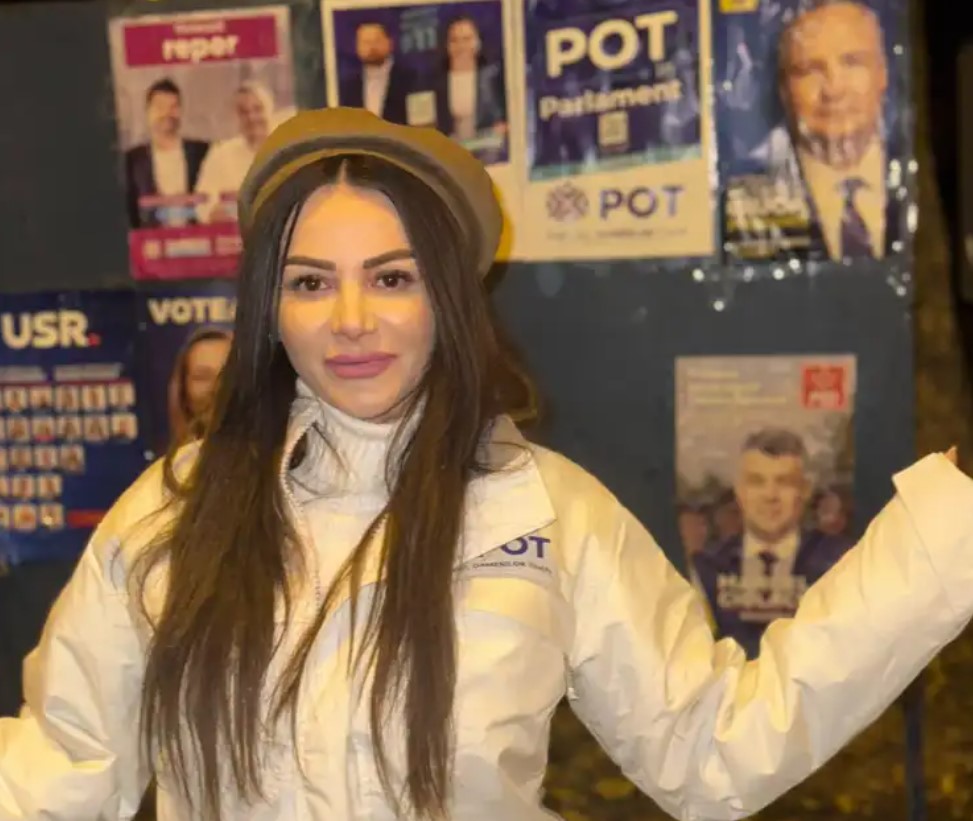Valentina Aldea Video Leak and Social Repercussions
In recent years, the digital age has brought with it numerous advancements and conveniences, but it has also introduced new vulnerabilities, especially in terms of personal privacy. One of the most distressing byproducts of this digital era is the prevalence of leaked videos, which can have devastating effects on the lives of the individuals involved. These incidents not only breach personal privacy but also often lead to severe emotional and psychological distress, tarnishing reputations and impacting careers irreversibly.

This paper focuses on the specific case of Valentina Aldea, a figure whose video was leaked online without her consent. Valentina Aldea, a name that until recently was associated with positive public and professional engagements, found herself at the center of a media storm when her private content was distributed across various digital platforms. The incident serves as a poignant example of the dangers and ethical challenges lurking in our interconnected digital world. It highlights the need for more stringent protections and a robust legal framework to safeguard individuals against such privacy invasions.
The ensuing discussion will delve into the background of Valentina Aldea, the circumstances under which her video was leaked, the immediate fallout, and the broader implications such breaches have. Through her case, we aim to explore the wider social, legal, and psychological ramifications of leaked videos, providing insights into both the personal impact on those directly involved and the societal response to such violations of privacy.
Contents
Analysis of the Incident and Video leak
The leaking of videos carries significant legal implications. For Valentina, the immediate recourse would involve pursuing legal action against those responsible for the distribution of the video. This could include charges related to privacy invasion, harassment, and possibly criminal penalties depending on the jurisdiction and specific circumstances of the leak. The legal framework surrounding digital content and privacy rights is complex, and such cases often test the boundaries of existing laws. For Valentina, navigating this legal landscape would be crucial in seeking justice and preventing further distribution of the video.
The social repercussions of the leaked video were profound for Valentina. The breach not only invaded her privacy but also affected public perception of her. Despite her previous reputation as a professional and advocate for women’s rights, the leak led to victim-blaming and shaming, common reactions in such scenarios that reflect broader societal issues around privacy and consent. The psychological impact on Valentina was also severe, as she had to cope with public humiliation and the personal violation of having her private life exposed without her consent. Such incidents can lead to long-term emotional and psychological distress, affecting all areas of a person’s life.
The role of the media in handling the leak was pivotal. While some media outlets might choose to sensationalize such incidents for higher viewership, ethical journalism demands a more sensitive approach. The media’s handling of Valentina’s situation varied, with some outlets focusing on the legal and ethical considerations of the leak, thereby fostering a more informed and respectful public discourse. However, others may have inadvertently perpetuated the issue by not adequately protecting her identity or by continuing to circulate the story without regard to its impact on her personal life. The media’s approach to such situations plays a critical role in shaping public opinion and can either contribute to the victim’s distress or help mitigate the damage by focusing on broader legal and ethical issues.
This detailed examination of Valentina Aldea’s case sheds light on the multiple dimensions of dealing with a leaked video. It underscores the need for robust legal solutions, societal education on privacy and consent, and ethical media practices to navigate and mitigate the consequences of such privacy breaches.
Who is Valentina Aldea?
Valentina Aldea is an individual whose career and public image were largely defined by her professional achievements and positive public engagements before a personal crisis catapulted her into unwanted media scrutiny. Known for her roles in community outreach and advocacy, Valentina had built a reputation as a dedicated and impactful figure. Her work, which often centered around women’s rights and empowerment, had earned her respect and admiration, establishing a positive public persona that resonated with many supporters and followers.

The incident began when an video involving Valentina was leaked online. The video, which was meant to remain private, quickly spread across various social media platforms and digital spaces, sparking widespread controversy and debate. The initial reactions were mixed, with some expressing sympathy towards her situation, while others unfortunately participated in sharing the video further. This widespread distribution highlighted the challenges of controlling personal content in a hyper-connected digital age, where privacy is constantly at risk.
Public and Personal Reactions
The public’s reaction to Valentina Aldea’s leaked video was a mix of sympathy, outrage, and, regrettably, victim-blaming. Many voiced their support for Valentina, recognizing the breach of her privacy as a severe violation of her personal rights and an issue that could happen to anyone in a digitally connected world. These supporters used social media platforms to express solidarity, often advocating for her right to privacy and condemning those who shared the video. However, there was also a segment of the online community that targeted Valentina with criticism and blame, questioning her character and actions, which unfortunately is a common scenario in cases involving leaked personal content. This dual response underscores the polarized views on privacy and consent in the digital age.
Valentina Aldea’s response to the crisis was handled with a combination of legal action and public statements. Legally, she pursued all available avenues to remove the video from public platforms and to hold those responsible accountable, working closely with lawyers specialized in digital privacy laws. Publicly, Valentina issued a statement condemning the violation of her privacy and highlighting the broader issues of cyber harassment and the non-consensual distribution of private content. She called for respect for individuals’ privacy and underscored the psychological impact such breaches can have.
Preventative Measures and Solutions
The incident highlighted the urgent need for comprehensive education on digital privacy and consent. Educational initiatives should target all age groups, teaching the ethical use of technology, understanding of digital footprints, and the consequences of sharing personal content without consent. Schools, workplaces, and online platforms can play crucial roles in disseminating this information, helping to cultivate a culture of respect and understanding regarding personal boundaries in the digital space.
To prevent similar incidents in the future, there must be a reevaluation and potential reform of existing legal frameworks concerning digital content and privacy. This includes clearer regulations on the distribution of images without consent, harsher penalties for violators, and more straightforward processes for victims seeking justice. Additionally, there needs to be a global consensus on these issues, as the internet does not adhere to national borders, and many of these crimes take place across international lines.
Effective support systems are crucial for the recovery and protection of victims of privacy breaches. This includes access to mental health services, legal assistance, and community support groups. Empowering victims through dedicated support not only helps in their personal recovery but also encourages a stronger societal stance against privacy violations. Institutions and social platforms should collaborate to provide these support mechanisms and make them easily accessible.
Valentina Aldea’s case sheds light on the complex dynamics of privacy in the digital age, illustrating the devastating effects that the non-consensual sharing of content can have on an individual’s life. From legal challenges to social repercussions, her experience underscores the need for significant changes in both public attitudes and legal systems.
As a society, we must advocate for and support the enforcement of privacy rights and foster a digital environment that respects individual boundaries. It is imperative to engage in and promote ongoing education about digital safety and consent, support legal reforms that protect privacy, and provide robust support systems for those affected by such violations. By taking these steps, we can hope to prevent future incidents like that experienced by Valentina Aldea and work towards a more respectful and considerate digital world.
Hot News -Aida Victoria Merlano Video Leak and Public Response
Nick Fuentes and Streamer Destiny Video Leak Sparks Debate
Medrick Burnett Jr Injury During Football Game and Video
Kai Cenat and Max Major Video That Shocked the Internet
Butterball Turkey Video on Brand Trust and Consumer Reaction
Logan Paul Suicide Forest Video and Its Impact on Digital Media Ethics
Sydney Thomas Video Spotlight on Her Rise to Fame

